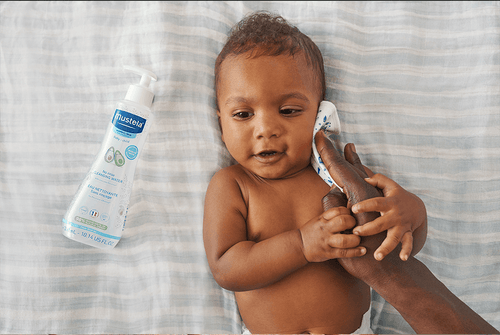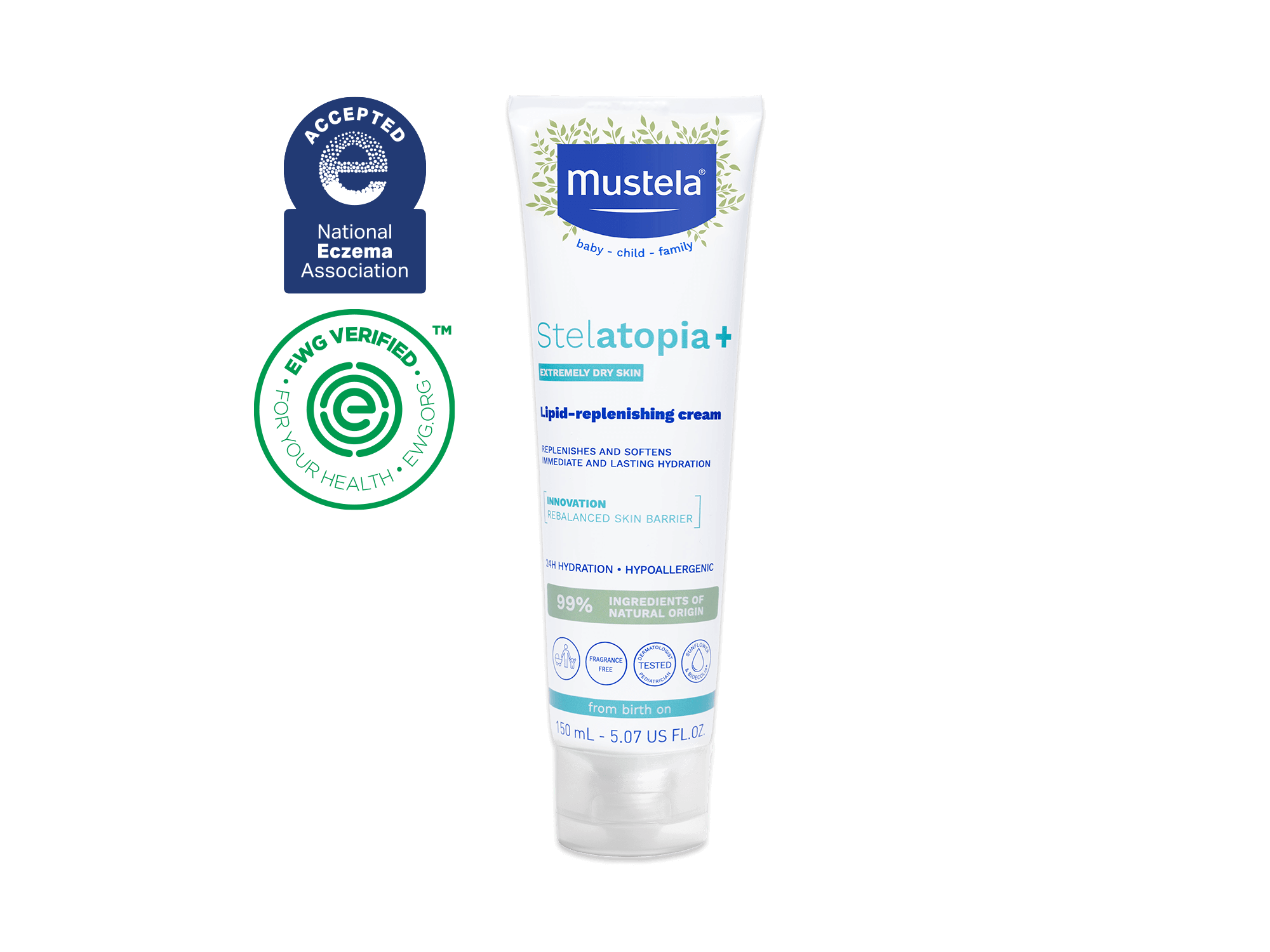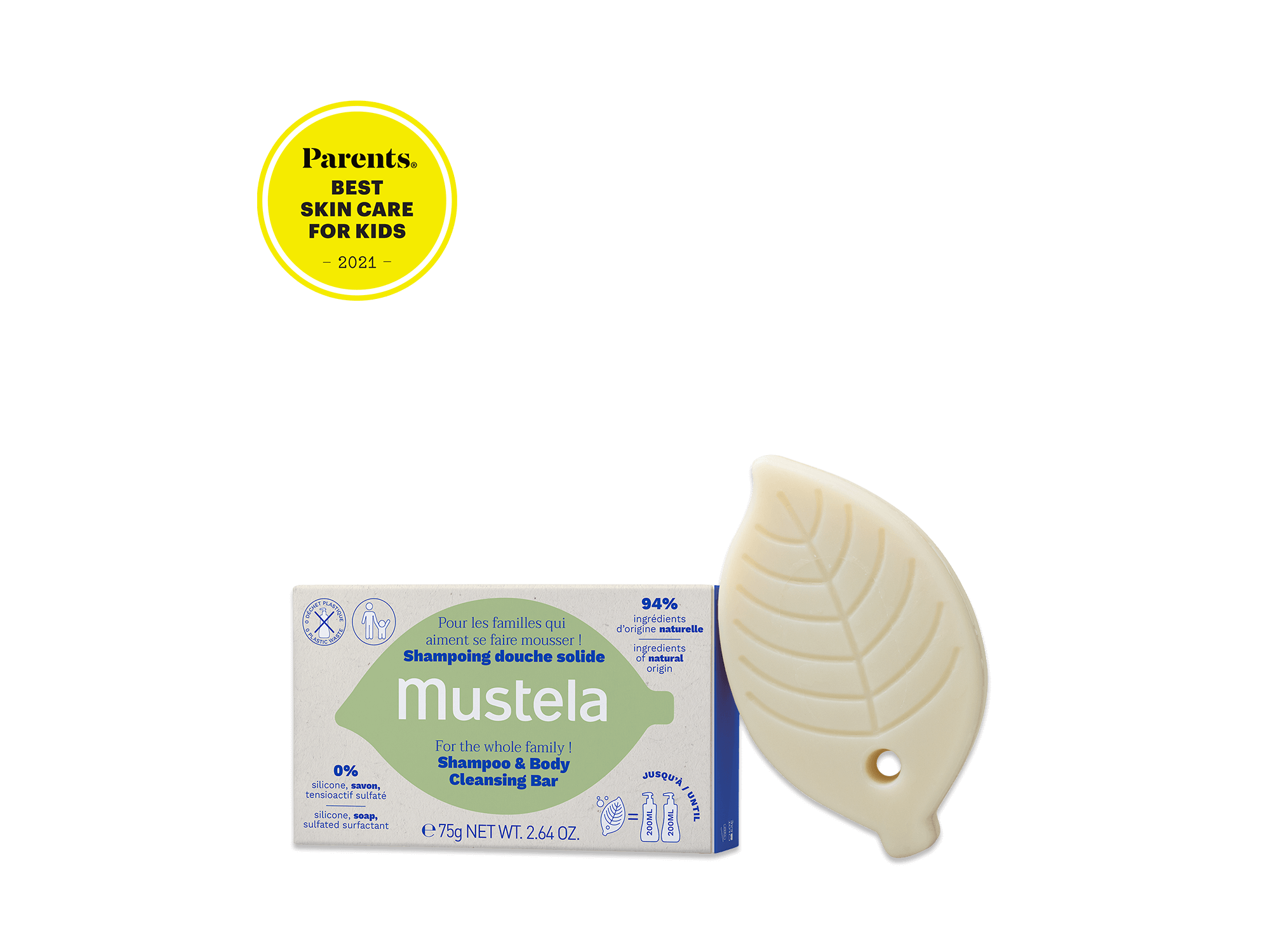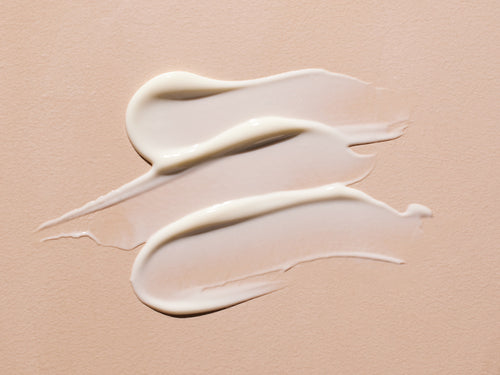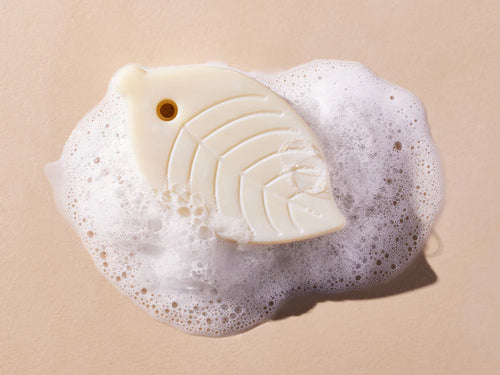Can you believe your baby is halfway to a year? We’ve come a long way, haven’t we?
It wasn’t so long ago that your child was a newborn, sleeping 16 to 18 hours a day and barely opening their eyes when they were awake. Now, your 6 month old baby is alert, familiar with loved ones, attempting to speak, and learning how to crawl.
While you’ve certainly become a seasoned veteran of parenting over the last half-year, you may still have some questions about your 6 month old baby. Carrying your baby, changing diapers, and cleaning your baby’s bottom are a breeze at this point. But you might be wondering about your little one’s feeding schedule or sleeping habits.
Before we get there, let’s first acknowledge you for a second.
It’s not an easy job to take care of a little human. While everything might not have gone according to plan, now’s the time to pat yourself on the back for the incredible job you’ve done so far!
OK, now back to your little one.
In this post, the baby experts at Mustela will explain everything you need to know about your 6 month old baby’s development, senses, motor skills, feeding schedule, sleeping habits, and immunizations. We’ll also provide some additional childcare tips, so let’s get started!

Caring For Your 6 Month Old Baby
As your little one continues to grow, so will their body and behavior. Here’s everything you need to know about caring for your 6 month old baby.
Your 6 Month Old Baby’s Development
Your little one has been getting a lot of breastmilk or formula over the past few months. How has this affected their physical growth?
There is quite a bit of variation in the height and weight of six-month-old babies. Fifty percent of female six-month-olds weigh between 14.9 pounds and 17.4 pounds and are between 24.6 inches and 25.8 inches in height.
Six-month-old males tend to be a bit larger. Fifty percent of males are 16.2 to 18.7 pounds in weight and 26 inches to 27 inches in height at six months.
Keep in mind that these are just averages. If your 6 month old baby is bigger or smaller than the figures we’ve mentioned, don’t be worried. Each child follows their own unique developmental path.
Remember that a lot of factors affect your baby’s weight and height. Just like adults, these factors include your baby’s genes and diet.
The best solution is to look at your baby’s growth rate (their physician will plot it on a growth chart for you at their check-ups). As long as your little one’s growth continues on a healthy upward swing, there’s nothing to be worried about.
Your 6 Month Old Baby’s Senses
At this point, your 6 month old baby’s senses are becoming sharper. Let’s take a look at each of the five senses.
Sense Of Sight
At six months, your little one’s sight has come a long way! They could only see objects that were fairly close to them during the first couple of months. But now, your little one’s sight is becoming sharper and clearer every day.
They’ll start seeing things farther away and will begin noticing details. Keep a variety of toys and colorful objects in your baby’s nursery to make sure their senses are constantly stimulated.
Your 6 month old baby will also recognize your face and begin smiling when you walk into a room. They might stare at you closely, inspecting your features and maintaining eye contact for longer periods of time. This is a great time to play peekaboo!
Sense Of Hearing
By the six-month mark, your baby will begin to identify familiar sounds and voices. When they hear a loud noise or a new sound, they will turn their head to see what’s going on.
Reading to your baby at this stage is very important, as it helps their language development a great deal.

Sense Of Touch
Your little bundle of joy has always loved to feel your skin and your partner’s skin. But now, they’re also interested in feeling new objects and surfaces. Allow them to feel different textures and touch them with their tiny hands. They’ll be curious to experience new sensations.
Sense Of Smell And Taste
Your baby has been able to recognize familiar scents — like the smell of your breast milk or an article of clothing that you’ve worn — for some time. Now, your 6 month old baby’s sense of smell is developing rapidly and they’ll begin to learn other smells, too.
Also, you can introduce solid foods to your baby’s diet between four and six months of age. You may discover that they love to eat some foods and are not so keen on others.
That’s perfectly normal! Their sense of taste is just now beginning to develop.
Your 6 Month Old Baby’s Skill Development

Motor Skills
After six months of growth and development, your baby’s muscles are far stronger than they were at birth. Here’s a list of motor skills you’re likely to see in your 6 month old baby:
- Staying in a sitting position without support
- Holding up their head and being able to look around
- Rolling over from tummy to back and vice versa
- Lifting up their body with their arms when on their tummy
- Grasping objects firmly with all five fingers
- Kicking and pushing their body around with their legs
- Standing up while leaning or holding onto something firm
As we mentioned earlier, each baby follows their own developmental path. So if your baby hasn’t reached all of the milestones above by the six-month mark, don’t worry. These are just a few motor skills that you may begin to see around six months of age.
Language Skills
Your 6 month old baby will also start responding to you with their own voice. While they aren’t able to say complete words yet, their baby babble is getting more sophisticated.
Vowel sounds like “ahh” and “ooh” probably started sometime around three months, and now you’ll begin hearing consonant sounds, like M, D, S, and B.
You might have already started reading to your baby. While reading stories to your little one, remember to be extra animated and over-emphasize different vowel and consonant sounds. This will help your baby recognize and remember those sounds!
And don’t forget to keep talking to your little one! Communicating with your baby prepares them for their first real words, which should come at around 12 months of age.
Your 6 Month Old Baby’s Feeding Schedule

The six-month mark is an exciting time for your little one’s diet!
By the time your baby is six months old, they’re finally ready to begin eating solid foods. While breast milk and baby formula should still be a major part of their diet, you can start also feeding your little one cereals, fruits, and veggies.
Softer foods like bananas and avocados are an easy way to make the transition. Introduce one food at a time, and keep an eye out for rashes or other signs of a food allergy. Just be patient and try to learn what your little one enjoys eating!
Now that they’re eating some solids, your question might be: How much solid food should they be consuming?
Start small, with around one ounce per feeding, and then gradually increase this to about three ounces three times a day.
Of course, the older they get the more they’ll need to consume, but for now, just aim to get them familiar with the different types of real foods they will be consuming as a part of the family.
One type of food you might want to avoid for a while is whole milk. The American Academy of Family Physicians and The American Academy of Pediatrics recommend introducing children to whole milk only after they’ve passed the 12-month mark.
This is because cow’s milk contains a lot of protein and minerals that your little one’s body simply isn’t ready to process. And since your little one is still breastfeeding or on formula, they are getting all the milk they need!
Your 6 Month Old Baby’s Sleeping Habits

There have been a lot of developments in your little one’s sleeping patterns over the past few months. For example, they’re generally sleeping less than they used to when they were newborns.
Every 6 month old baby’s sleeping habits are different. On average, six month olds sleep around 14 hours per day.
And while your baby might have slept six or seven hours in a row at three or four months of age, your little one might be waking up every few hours at the six-month mark.
While this makes it difficult for you to get a good night’s rest, it’s perfectly normal for your 6 month old baby to begin waking up several times throughout the night. There are several possible explanations for your baby’s restless sleep.
For one, babies begin teething around six months of age. This is a painful process for your little one and may cause them to wake up in the middle of the night.
Growth spurts are another possible cause of your baby’s frequent waking, as they can cause growing pains or make your baby feel hungry more often.
What can you do to help? Some parents also consider sleep training their babies at this age, while others let their babies lead the process.
If you would like to sleep train your little one, remember that it’s going to take a lot of patience as they gradually learn the skill of going back to sleep on their own.
Luckily, there are a few techniques that can help to make the process easier. But no matter which technique you try (even if that’s no technique!), it’s important to establish a bedtime routine. This can involve bathing them, feeding them, and reading them a story.
Having a calming and consistent bedtime routine that you practice at the same time every day will help your little one wind down easier and eventually fall asleep.
All of that said, it’s also perfectly normal for your 6 month old baby to sleep soundly through the night for seven or eight hours in a row. Consider yourself lucky if this is the case!
Your 6 Month Old Baby’s Immunizations
There are a few immunizations your baby will need at six months of age. Assuming your little one has received all of their vaccinations at one month, two months, and four months, then at six months, they’ll be ready for the third round of:
- Rotavirus vaccine (RV)
- Diphtheria, tetanus, and acellular pertussis vaccine (DTaP)
- Haemophilus influenzae type B vaccine (HIB)
- Pneumococcal conjugate vaccine (PCV)
If your 6 month old baby isn’t current on immunizations, talk to your doctor about getting them caught up ASAP.

General Childcare Tips
Babyproofing Your Home
As each day passes, your little one is getting closer to moving around on their own!
If you haven’t yet babyproofed your home, now’s the time to get this sorted as in a few months, your little one will be exploring your home on their hands and knees.
A good place to start is to change your perspective and put yourself in your baby’s shoes, so to speak. What can your child easily access from their height that may be a danger to them?
- Are there sharp objects on the ground?
- Are there loose electrical cords?
- Are there low drawers that your little one can access? Do these drawers have dangerous items inside?
- Does the table in the lounge have sharp corners?
All these are simple questions to help you get started on making your little one’s environment safe for them to explore.
Here are a few specific babyproofing tips:
- Childproof kitchen cabinets and drawers that contain harmful objects
- Cover the stove knobs to prevent your little one from switching the burners on
- Place covers on items with sharp edges or corners
- Lower your little one’s crib mattress to prevent them from trying to jump out on their own
- Put locks on the medicine and liquor cabinets
- Cover electrical outlets
- Cover heating vents and radiators to avoid burns
- Place baby gates in places like your baby’s room, the stairs, and any other potentially hazardous area
Playing Music

Music can benefit your little one’s social and cognitive skills tremendously!
They might not be able to speak for a while, but fun baby songs like “The Itsy Bitsy Spider,” “Old MacDonald Had a Farm,” or any other silly sing-along songs are great for your little one to continue listening to.
They may even hum along when it’s time for the chorus!
Physical Activities
Your little one still needs adequate tummy time at this age to help them strengthen their muscles.
Your baby can now probably lift their body using their arms while on their tummy and even rock back and forth on their hands and knees. This movement is the building block for crawling, which will typically happen at around nine months.
When that time comes, don’t be alarmed if your little one doesn’t naturally go forward after they’ve been rocking back and forth for a while. Some babies start by moving sideways or even in reverse!
In addition to tummy time, you can try holding your little one and helping them balance while they’re in a standing position. You’ll enjoy watching them bounce up and down, and they’ll be strengthening those tiny leg muscles!
Communicating With Your Baby
At this point in your child’s life, their brain is developing rapidly. It’s important to speak to your baby often, even if it’s just dictating your actions as you complete simple tasks.
For instance:
- When you’re changing their diaper, explain what you’re doing
- When you’re playing with different blocks, say the colors out loud to them
- When you’re feeding them, tell them what’s happening
- If you notice them nodding or making sounds in return, respond to these gestures and continue “conversing”
All this is helping your baby develop their communication skills!
Also, around the six-month mark is when your baby will begin to learn their own name, so say it every time you make eye contact with them.
Taking Care Of Your Baby’s Skin

As a parent, it’s essential to take care of all aspects concerning your baby and ensure that they grow and develop at a healthy rate. That includes their skin!
Because your baby’s skin is delicate, it’s important to take extra special care of it. At six months of age, your baby may begin to show signs of a skin condition, like eczema, baby acne, cradle cap, or peeling skin. That’s why skincare is such a crucial part of childcare!
Sometimes, baby products aren’t as safe as we would like them to be. Pay attention to the ingredients of the products you opt for, as these may irritate your little one’s skin. To play it safe, always use baby-friendly products made with natural ingredients, like Mustela’s.
We offer a variety of bathtime products, including shampoo, body wash, and bath oil, as well as baby wipes and soothing creams and lotions. These safe, gentle products will do wonders for your 6 month old baby’s delicate skin!
When To Be Concerned
Here are some signs that your baby has a developmental delay. Head to the doctor’s office now if your 6 month old baby:
- Doesn’t respond to the sound of your voice or loud noises
- Hasn’t smiled or laughed yet
- Isn’t able to make basic vowel sounds
- Doesn’t seem to recognize you and your partner
- Can’t support the weight of their own head
The above are warning signs you should take seriously and seek medical advice.
Sometimes, acting early can make a huge difference! The sooner a doctor can address the problem the sooner they will be able to take the necessary steps to help your little one.
Apart from these warning signs, there is no reason to be overly concerned with your baby’s development. Every child hits milestones on their own time.
Just keep the tips in mind that we’ve mentioned here, and your little one will be right as rain!
Final Thoughts On Caring For Your 6 Month Old Baby

While it’s essential to take in all of this information, we can’t talk enough about the incredible job you’re doing so far!
It’s challenging to take care of a baby, especially because they need your attention at all times. You should be proud of yourself, even though things might get rough at times.
Your 6 month old baby has grown in leaps and bounds. But this journey is only just beginning!
When in doubt, don’t be afraid to ask for help from your loved ones. And you can also always head to Mustela’s blog to get the most up-to-date resources on caring for your growing baby.

